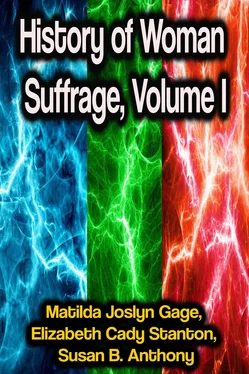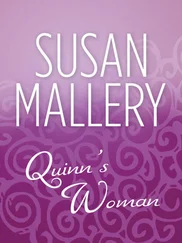My pleas before the Constitutional Convention and the people, were for equal legal and political rights for women. In detail I asked:
1st. Equal educational rights and privileges in all the schools and institutions of learning fostered or controlled by the State.
2d. An equal right in all matters pertaining to the organization and conduct of the Common Schools.
3d. Recognition of the mother's equal right with the father to the control and custody of their mutual offspring.
4th. Protection in person, property, and earnings for married women and widows the same as for men.
The first three were fully granted. In the final reading. Kingman changed the wording of the fourth, so as to leave the Legislature a chance to preserve the infamous common law right to personal services. There were too many old lawyers in the Convention. The Democracy had four or five who pulled with Kingman, or he with them against us. Not a Democrat put his name to the Constitution when adopted.
The debate published in the Wyandotte Gazette of July 13, 1859, on granting Mrs. Nichols a hearing in the Constitutional Convention, and the Committee's report on the Woman's Petition, furnishes a page of history of which some of the actors, at least, will have no reason to read with special pride.
REPORT OF JUDICIARY FRANCHISE COMMITTEE ON WOMAN SUFFRAGE PETITIONS.
The Committee on the Judiciary, to whom in connection with the Committee on Franchise was referred the petition of sundry citizens of Kansas, "protesting against any constitutional distinctions based on difference of sex," have had the same under consideration, and beg leave to make the following report:
Your Committee concede the point in the petition upon which the right is claimed, that "the women of the State have individually an evident common interest with its men in the protection of life, liberty, property, and intellectual culture, and are not disposed to deny, that sex involves greater and more complex responsibilities, but the Committee are compelled to dissent from conclusion of petition; they think the rights of women are safe in present hands. The proof that they are so is found in the growing disposition on the part of different Legislatures to extend and protect their rights of property, and in the enlightened and progressive spirit of the age which acts gently, but efficiently upon the legislation of the day. Such rights as are natural are now enjoyed as fully by women as men. Such rights and duties as are merely political they should be relieved from, that they may have more time to attend to those greater and more complicated responsibilities which petitioners claim, and which your Committee admit devolves upon woman.
All of which is respectfully submitted.
Sam. A. Kingman, Geo. H. Lillie, P. S. Parks, John P. Slough,
Sam. A. Stinson, John F. Burns, J. D. Greer, G. Blunt, Ben. Wrigley.
In the spring of 1858, having arranged my home affairs, I set about the prosecution of a plan for widening the area of woman's work and influence on the Missouri border. Separated only by the steam-plowed river from my Kansas home, Missouri towns and hamlets lay invitingly before me. For more than three years I had held my opportunity in reserve. The time to improve it seemed to have come.
When our company landed at Kansas City, October, 1854, members of a Missouri delegation opposed to the Free State emigration to that Territory met us. More than half the company that preceded ours had been turned back by their representations without a look at the territory. As our boat touched the landing, Col. Scott, of St. Joseph, stepped on board, and commenced questioning Hon. E. M. Thurston, of Maine, who, as Committee of Arrangements for the transfer of the company's baggage, excused himself, and turning to me, added: "Here, sir, is a lady who can give you the information you desire—Mrs. Nichols, editor of the Windham County Democrat ." In accepting the introduction, I caught the surprised and quizzical survey of a pair of keen, black eyes, culminating in an unmistakable expression of humorous anticipation; and, certain that my interviewer was intelligent and a gentleman, I resolved to follow his lead in kind. "Madam," he inquired, "can you tell me where all these people are from, and where they are going?" They are from the New England States, and are going to Kansas. "And what are they going to do in Kansas?" Make homes and surround themselves with the institutions, social and political, to which they are accustomed. "But, madam, they can't make homes on the Kansas prairies with free labor; it is impossible!"
Why, sir, our ancestors felled the primitive forests and cleared the ground to grow their bread, but Kansas prairies are ready for the plow; their rank grasses invite the flocks and herds. Do you know what a country we come from? did you never hear how in New Hampshire and Vermont the sheeps' noses have to be sharpened, so that they can pluck the spires of grass from between the rocks?
With a humorous, give-it-up sort of laugh, he remarked, abruptly: "You are an editor; do you ever lecture?" Sometimes I do. "On what subjects?" Education, Temperance, Woman's Rights—"Oh, woman's rights! Will you go to St. Joseph and lecture on woman's rights? Our people are all anxious to hear on that subject." Why, sir, I am an Abolitionist, and they would tar and feather me! "You don't say anything about slavery in your woman's rights' lectures, do you?" No, sir; I never mix things.
After a sharp, but good natured tilt on the slavery question, the Colonel returned to the lecture, about which he was so evidently in earnest—guaranteeing "a fine audience, courteous treatment, and ample compensation"; that I gave a promise to visit St. Joseph on my return if there should be time before the closing of navigation, a promise I was prevented from fulfilling. And now after three years, in which the emigrants had made homes and secured them against the aggressions of the slave power, I wrote him that if the people of St. Joseph still wished to hear, and it pleased him to renew his guarantees of aid and protection, I was at leisure to lecture on woman's rights. His reply was prompt; his assurances hearty. I had "only to name the time," and I would find everything in readiness. That the truce-like courtesy of the compact between us may be appreciated, I copy a postscript appended to his letter and a postscript in reply added to my note of appointment; with the explanation, that in our Kansas City interview, the Colonel had declared the negro incapable of education, and that emancipation would result in amalgamation.
Postscript No. 1.—Have you tried your experiment of education on any little nigger yet? J. S.
Postscript No. 2.—No, I have not tried my educational experiment, for the reason that the horrid amalgamationists preceded us, and so bleached the "niggers" that I have not been able to find a pure-blood specimen. C. I. H. N.
The subject of slavery was not again mentioned between us. And when we shook hands in the cabin of the steamer at parting, he remarked, with a manly frankness in grateful contrast with the covert contempt felt, rather than expressed, in his previous courtesies, that he thought it proper I should know, that my audiences, composed of the most intelligent and respectable people of St. Joseph, were pleased with my lectures. One of its most eminent citizens had said to him, that he "had not thought of the subject in the light presented, but he really could see no objection to women voting."
Only one lecture had been proposed. By a vote of my audience I gave a second, and had reason to feel that I had effectually broken ground in Missouri; that I had not only won a respectful consideration for woman's cause and its advocacy, but improved my opportunity to vindicate New England training, in face of Southern prejudices. One little episode, as rich in its significance, as in the inspiration it communicated, will serve to round out my St. Joseph experience.
Читать дальше












